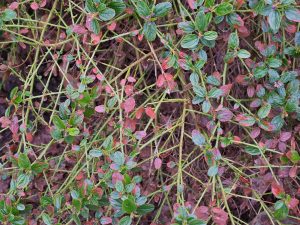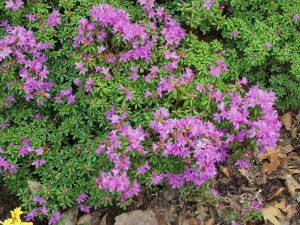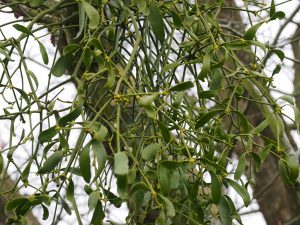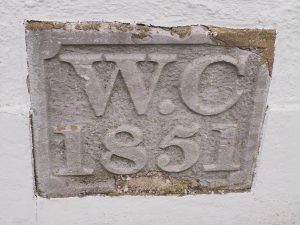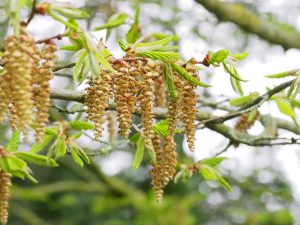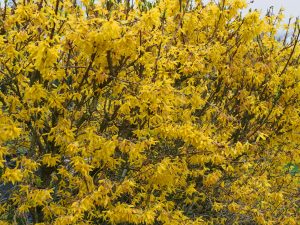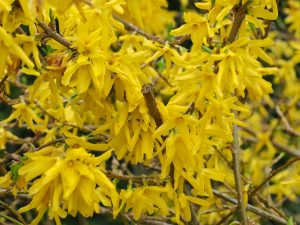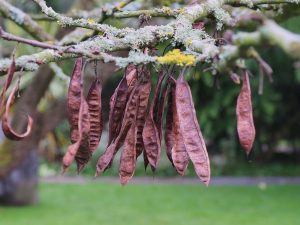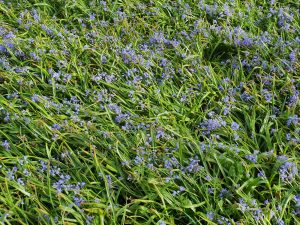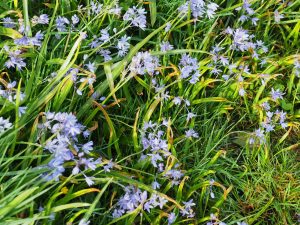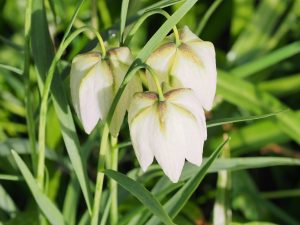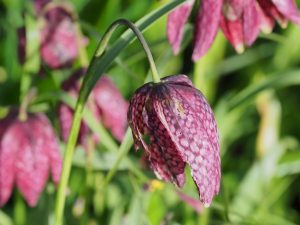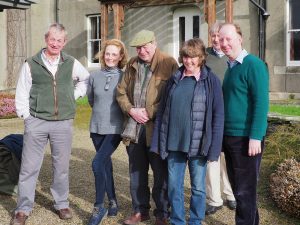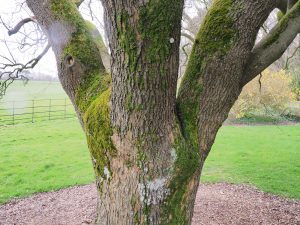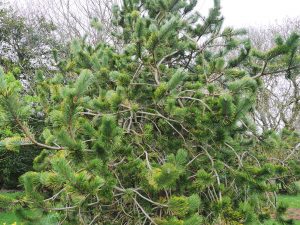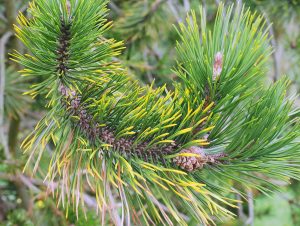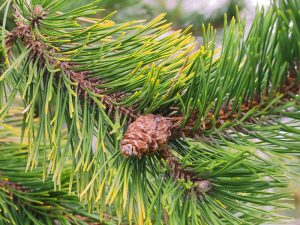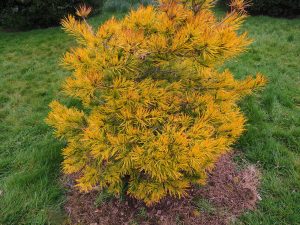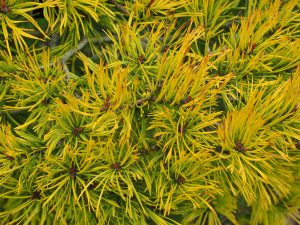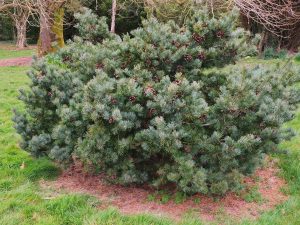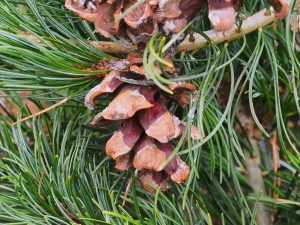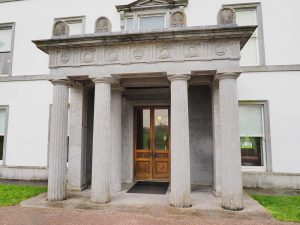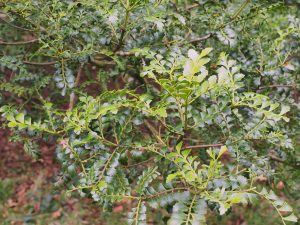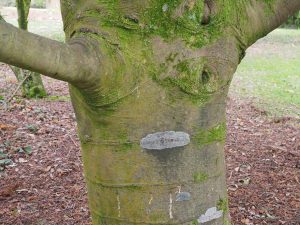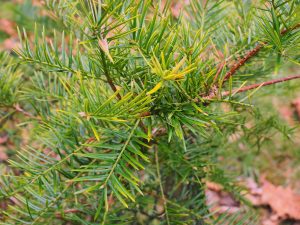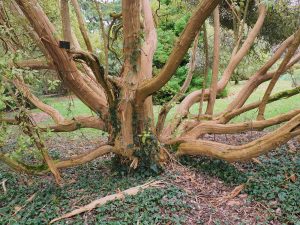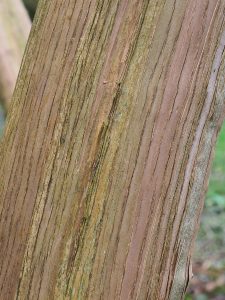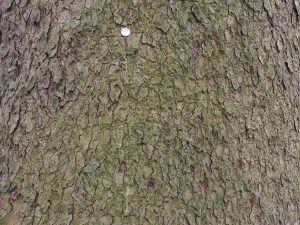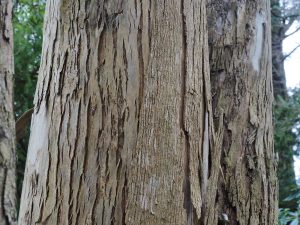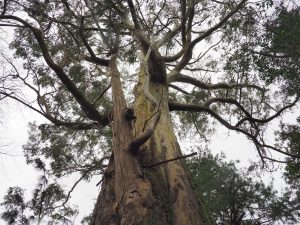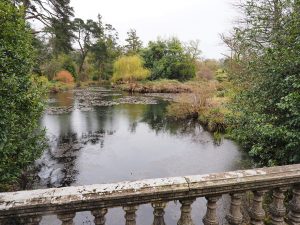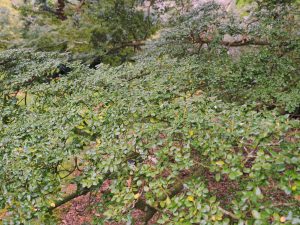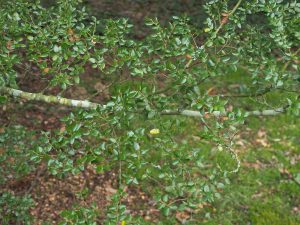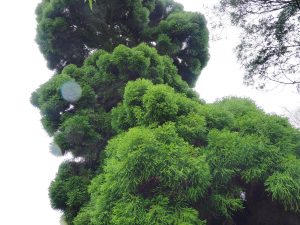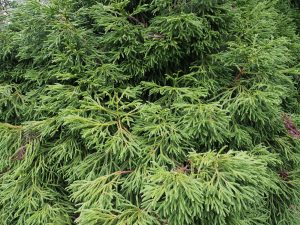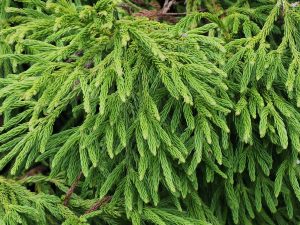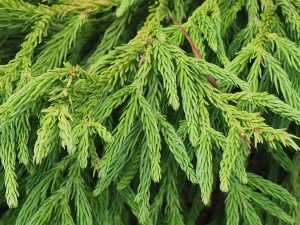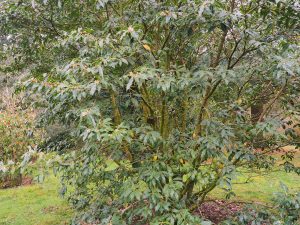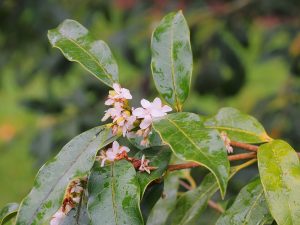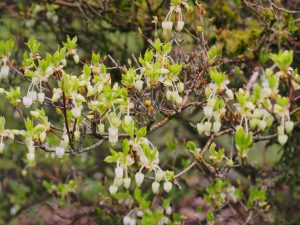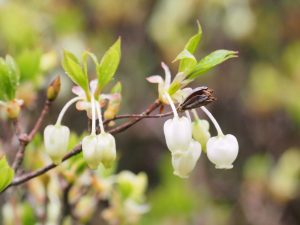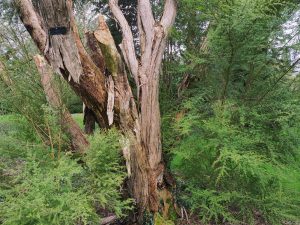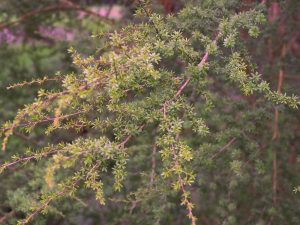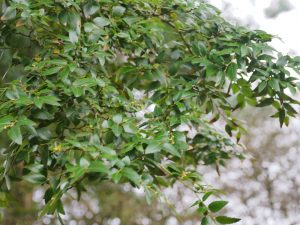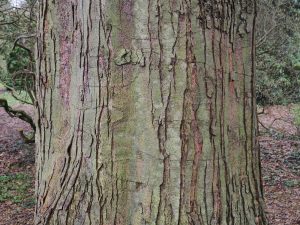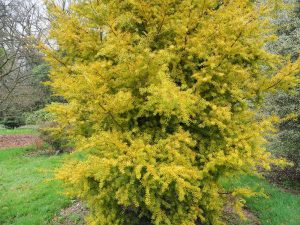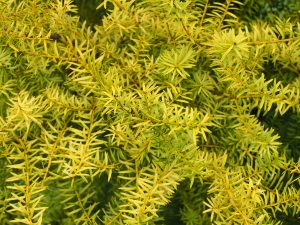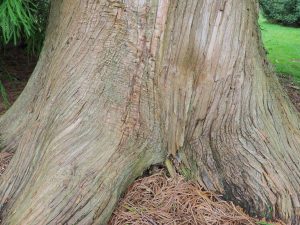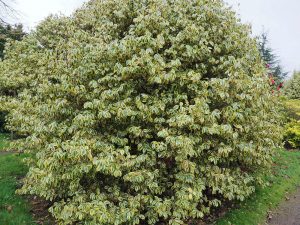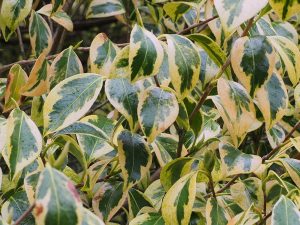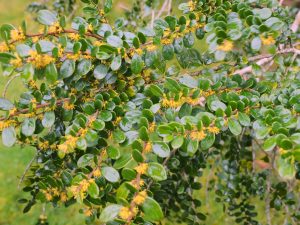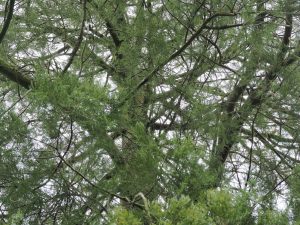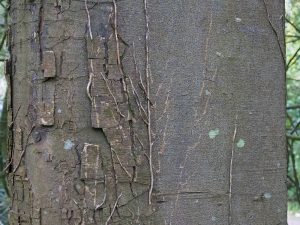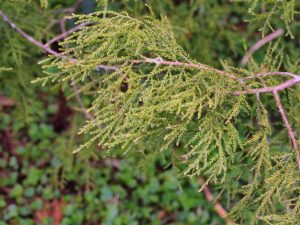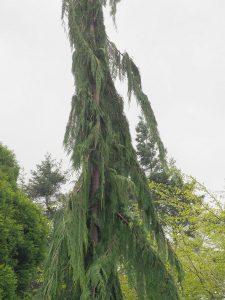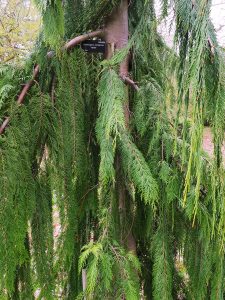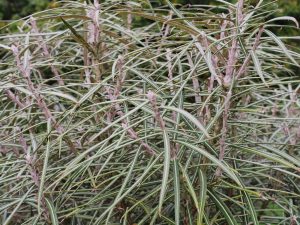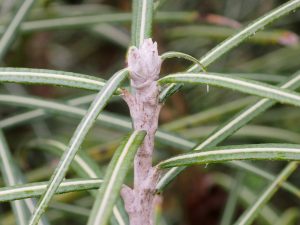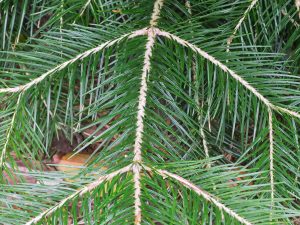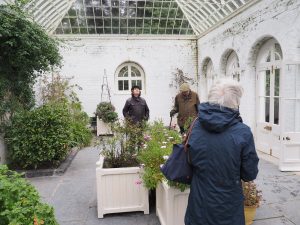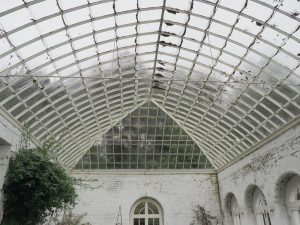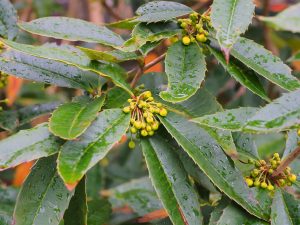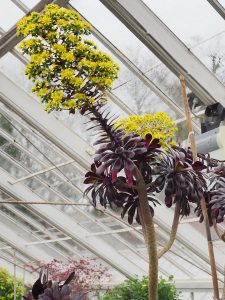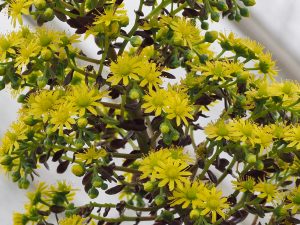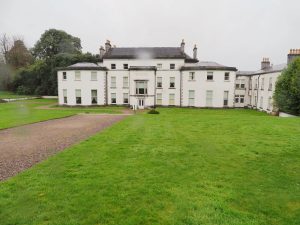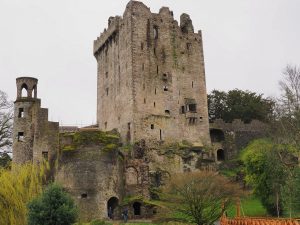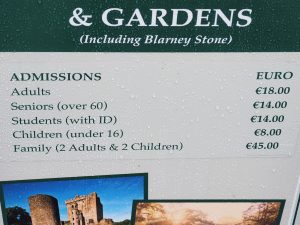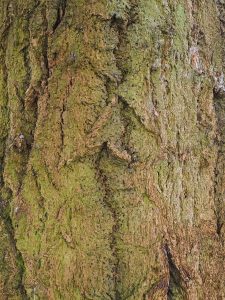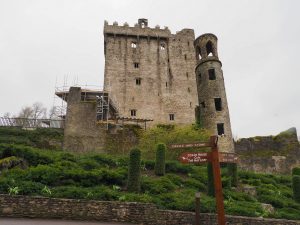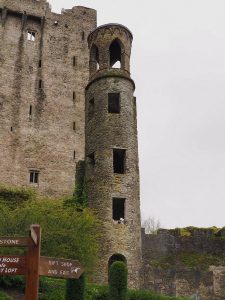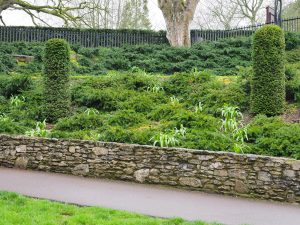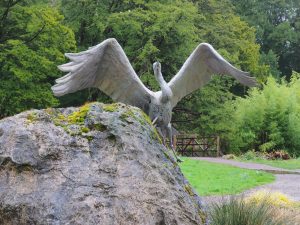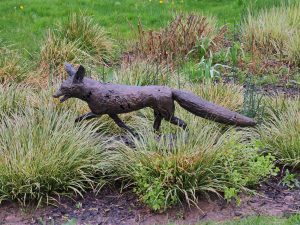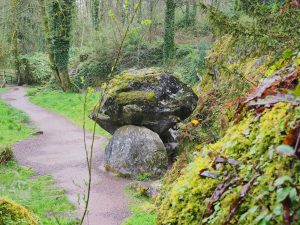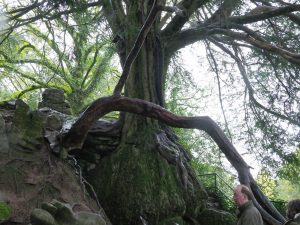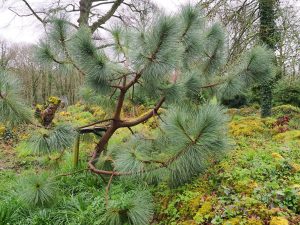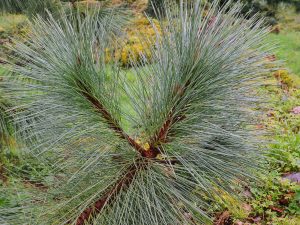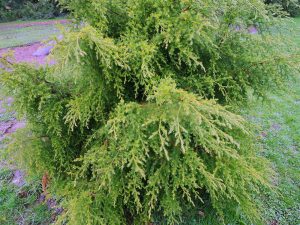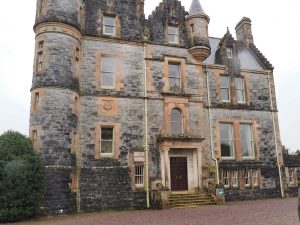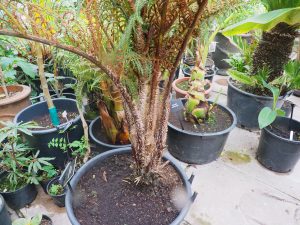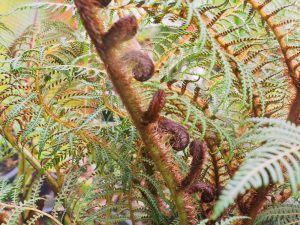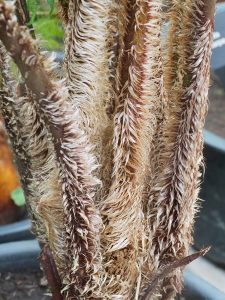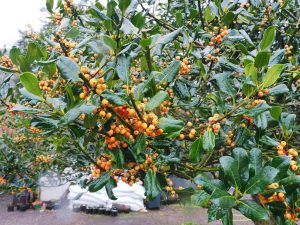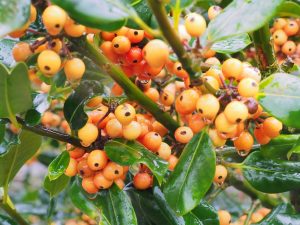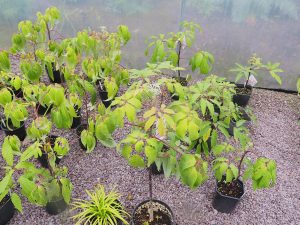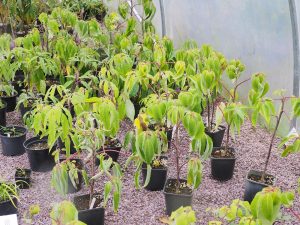The start of our Irish trip. We leave Llanfair Court in Monmouthshire at 8.00 but a few garden shots first. We head for Fishguard via Port Talbot to collect Thomas Methuen-Campbell.
Osmanthus delavayi full out and looking fine. One of four in square beds featuring a magnolia.
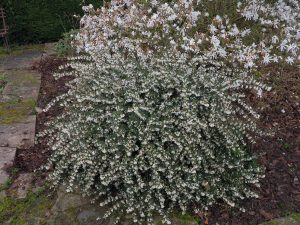
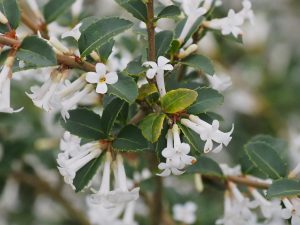
Typical snow damage on Ceanothus thyrsiflorus repens. Hard to know what to do as far as pruning goes. May be a ‘start again’ situation.
Rhododendron impeditum ‘J C Williams’ full out.
Mistletoe in Davidia involucrata. Not seen this before! Both look content.
The date plate at Llanfair.
Carpinus betulus in flower
Forsythia at its best.
Seed pods still holding on Cercis siliquestrum but the seeds have long shed.
A three and a half hour crossing in choppy seas required some liquid support (three good gins) and sitting dead centre in the ferry. We then arrive as guests at Carrichbryne House after another hour and a half drive. Not much garden here but:
Scilla as a carpet like bluebells. Thicker and larger than I have seen before.
Fritillaria full out amid the scilla as well.
Team photo before we set off for Fota Arboretum – two hours away.
Fota Arboretum was a joy – 35 acres of well maintained trees and shrubs with lots of new planting. The head gardener really on the job. Plenty of recent storm damage from Storm Orphelia.
Before we even get going a huge Mayterius boriaria from Chile.
Pinus incinata had contorted branches and appeared as a rounded shrub.
Pinus sylvestris ‘Aurea’ seemed very dwarf as well.
Pinus parvifolius ‘Negishi’ was likewise.
The front of Fota House run by a trust. The arboretum is state run and we had no idea about the wildlife park or golf course. Sadly the pretty island of Fota and its landscape have been split up.
Phyllocladus trichomanoides as a huge tree planted in 1941.
A young Torreya californica much like ours.
A vast Olearia paniculata with wonderful peeling bark.
A huge Picea sitchinensis (Sitka Spruce) with wonderful bark. One seldom sees this conifer in maturity like this as it is usually cropped for timber.
An equally huge Eucalyptus viminalis.
And Eucalyptus muelleriana.
The view across the lake.
Nothofagus solanderi planted in 1943.
Cryptomeria japonica ‘Spiralis’ – one of the finest record trees I have ever seen.
Osmanthus serrulata in flower was a new one to me and needs checking out.
Enkianthus subsensilis said the label but we agreed this is Enkianthus perulatus.
A gigantic Leptospermum ericoides planted only in 1979. Shooting from the base.
Nothofagus dombeyi with smaller leaves than some.
Podocarpus totara ‘Aurea’ was a dramatic yellow in the landscape. Much yellower than ours.
The record Irish Cryptomeria japonica with an enormous trunk.
Camellia japonica ‘Variegata’ – a large and vigorous plant put in in 1961. Not as horrid as some evergreen camellias.
Azara integrifolia var brownea with wonderful scent.
Then a gigantic Dacryarpus dacrydiodes planted in 1916 and only recently correctly labelled. Very different in habit and leaf form to our two young trees at home. Our foliage is bronze and trailing not green as here.
Chamaecyparis nookatensis ‘Jubilee’ was a fine feature plant with a pencil shape.
Olearia lacunosa – another species new to me.
Abies pinsapo but with no cones yet. Much larger than ours at home which did have cones last year.
The conservatory which was restored in 2000 and the team with our host. Not much plant wise in here.
Berberis insignis in flower which our plant still has not managed.
Aeonium arboreum ‘Schwarzkop’ in full flower which I do not think that I have photographed before.
The back of Fota House up to the walled garden and herbaceous/rose borders. The walled garden not overseen by the trustees rather than OPW – the Irish state entity which manages and now owns historic houses and gardens.
Then to Blarney Castle and Gardens where we were met by Adam Whitbourn (head gardener) and Rory. A hugely exciting and developing garden with big plans for more planting. They had visited Vietnam three times collecting seed and had several polytunnels full of wild collected schefflera, polyspora and other novelties.
Note the entry charges to Blarney – they get 500,000 visitors which is the most for any Irish garden. We did not go near the Blarney Stone itself and avoided all Americans which was not difficult in torrential rain.
Pseudotsuga menziesii at the entrance in full maturity.
Blarney Castle
A yew border filled with topiary and alliums. Odd but effective and different. Below it a whole bank of rhododendrons newly planted from Millais nurseries.
Statue of a heron – one of the better in a horrid collection around seven Blarney stones – enough bullshit here to fill a lorry as they were only erected two years ago.
A fairly rancid fox!
A (not the) famous Blarney stone with bullshit to match.
The witches cauldron. A yew growing in rock with a huge spread.
Pinus montezumae – a blue form which seemed more cold hardy than ours ever were.
Cupressus dupreziana was attractive and worth getting.
Blarney House, lived in by the (private) owners but open for tours for three months in the year – a quarter mile from the castle.
Cyathea tomentosissima was a new one to me. They take these out to the fernery for the summer.
Ilex aquifolium ‘Bacciflava’ in full yellow berry despite the time of the year. The best show of this I have ever seen.
Schefflera frangipanensis seedlings from various Vietnamese collecting trips. Quite some variation. Having signed the Nagoya Protocol papers we leave with some trophies to try out and report back on.
